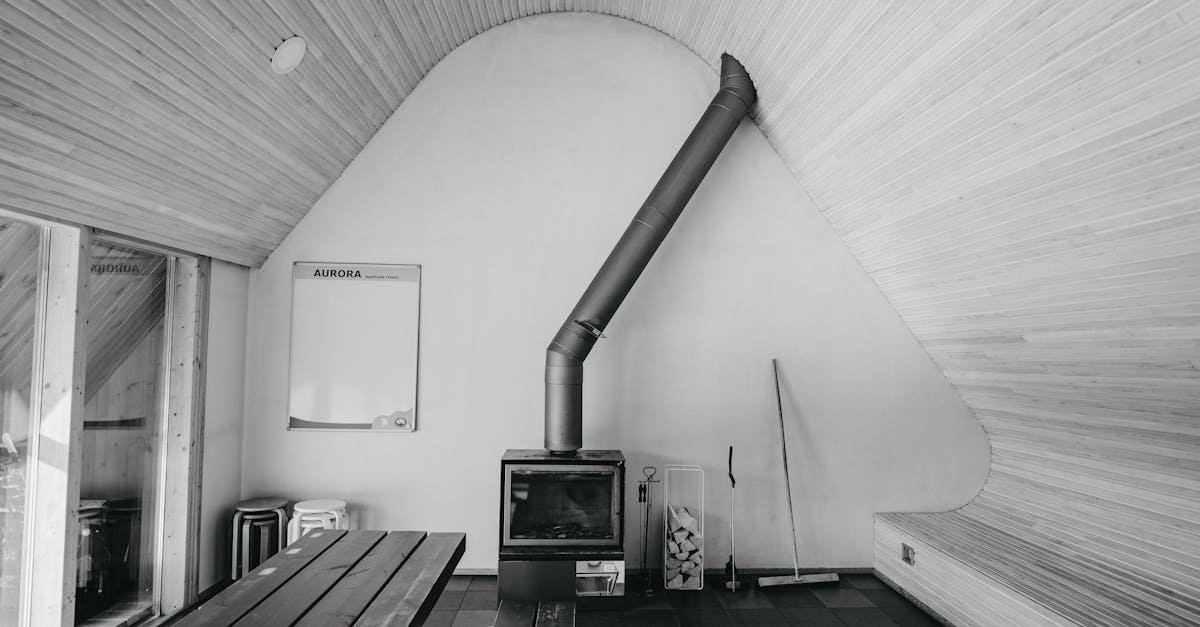Looking for eco-friendly heating options? You’ve got several great choices that not only reduce your carbon footprint but also save you money in the long run. From solar heating systems that harness the sun’s power to geothermal heat pumps that tap into the earth’s natural warmth, these solutions can keep your home cozy without harming the planet.
You can also consider biomass heating, which uses organic materials like wood pellets for efficient warmth. Each of these options offers unique benefits tailored to different needs and budgets, making it easier than ever to embrace a greener lifestyle. With the right eco-friendly heating solution, you can enjoy comfort while contributing to a sustainable future.
Overview of Eco-Friendly Heating Options
Eco-friendly heating options provide sustainable alternatives to conventional systems. They reduce energy consumption and minimize your carbon footprint. Here’s a look at some of the most popular options available.
Geothermal Heating
Geothermal heating systems use the Earth’s stable underground temperature for heating and cooling. These systems require an upfront investment, but they offer several advantages:
- Lower operational costs: Save money on energy bills.
- Small carbon footprint: Reduce greenhouse gas emissions.
- Longevity: Last up to 50 years with proper maintenance.
These systems can pay for themselves within 8 years, making them financially attractive over time [1][5].
Solar Heating
Solar heating systems harness energy from the sun to warm your home. They come in two main types:
- Hydronic collectors: Heat liquid that circulates to warm your space.
- Air systems: Operate like traditional HVAC systems but use solar power.
Solar heating systems require an initial investment but provide free energy afterward, making them an efficient choice for long-term savings [1][4].
Adopting eco-friendly heating options not only helps the environment but also promotes energy independence and financial savings. Each option presents unique benefits that cater to various needs, encouraging greener living while ensuring home comfort.
Types of Eco-Friendly Heating Systems
You can choose from several eco-friendly heating systems that suit your needs. Each option offers unique benefits and promotes energy efficiency.
Solar Heating
Solar heating uses sunlight to warm your home. There are two main types:
- Hydronic Collectors: These systems heat a liquid to warm your home. They work well with radiant heating systems, providing comfortable heat from the floor.
- Air Systems: Similar to traditional HVAC systems, these use solar panels to generate heat. They distribute warm air throughout your home, keeping it cozy.
Solar heating can lower energy bills and reduce reliance on fossil fuels. It works best in sunny areas, but initial installation can be costly. You can offset these costs with government incentives.
Geothermal Heating
Geothermal heating takes advantage of the Earth’s stable underground temperature. It uses a heat pump to transfer heat from the ground into your home.
This system offers several perks:
- Energy Efficiency: Geothermal systems use less energy than traditional heating methods. They can cut heating costs by about 30-60%.
- Longevity: These systems have a long lifespan, often around 25 years or more. The underground components are durable and require little maintenance.
- Small Carbon Footprint: Geothermal heating emits minimal greenhouse gases, making it an eco-friendly choice.
Though it involves a higher initial cost, many homeowners find savings over time. Often, geothermal heating pays for itself within eight years.
Biomass Heating
Biomass heating uses organic materials, like wood pellets, for energy. It’s a renewable source of heat that helps reduce waste.
Benefits of biomass heating include:
- Sustainability: You can easily obtain materials like wood chips or pellets from local sources. This supports the economy and promotes sustainability.
- Carbon Neutrality: Burning biomass releases carbon dioxide, but plants absorb this gas as they grow. This cycle creates a nearly carbon-neutral process.
- Affordability: Biomass heating systems can be less expensive than traditional heating options. Materials may cost less, and you can source them locally.
Consider biomass heating if you want a sustainable, cost-effective option. It provides a reliable source of warmth while benefiting the environment.
Benefits of Eco-Friendly Heating Options
Eco-friendly heating options offer numerous advantages. These benefits extend to your finances, health, and the planet. Here are some key benefits of these heating systems.
Environmental Impact
Eco-friendly heating options greatly reduce environmental harm. They rely less on fossil fuels. This reduction leads to lower greenhouse gas emissions. For instance, geothermal heating taps into the Earth’s natural temperature. It produces no pollution and operates efficiently. Such systems contribute to a cleaner environment and combat climate change.
Cost Effectiveness
Investing in eco-friendly heating often leads to long-term savings. Though initial costs may be higher, operational expenses are typically lower. Geothermal systems can last up to 50 years. They pay for themselves over time by cutting energy costs. Solar heating options use free energy from the sun. Government incentives can also lessen installation expenses. Eventually, these systems provide a smart financial choice for your home.
Energy Efficiency
Energy efficiency stands as a hallmark of eco-friendly heating. Systems like heat pumps extract heat from the air or ground to warm your space. They run with minimal energy usage. Hydronic heating utilizes water, reducing heat loss. These efficient methods maximize warmth while using less energy. Better energy efficiency lowers your utility bills and conserves resources.
Choosing the Right Eco-Friendly Heating Option
Selecting an eco-friendly heating option requires careful thought. You must consider your specific needs, budget, and home type. Let’s explore some key aspects to help you make the best choice.
Considerations for Homeowners
- Location: Your geographic area affects system efficiency. For example, geothermal systems work best in regions with stable underground temperatures. Solar systems thrive in sunny climates.
- Budget: Installation costs vary. Geothermal systems often require significant upfront investment but save money over time. Solar systems can also be expensive but decrease energy bills.
- Space: Available space influences your options. Geothermal systems need land for installation, while solar panels may fit on rooftops.
- Maintenance: Consider long-term maintenance needs. Geothermal systems require minimal upkeep, while biomass systems may need regular fuel supplies.
| System Type | Efficiency | Upfront Cost | Long-Term Savings | Maintenance Level |
|---|---|---|---|---|
| Geothermal | High | High | Significant | Low |
| Solar | Medium | Medium | Moderate | Low |
| Biomass | Medium | Low | Moderate | Medium |
- Geothermal Heating: Most efficient, providing consistent warmth. It pays back initial costs through lower utility bills.
- Solar Heating: Uses sun energy to warm your home. Options include hydronic or air systems. Long-term savings depend on sunlight availability.
- Biomass Heating: Affordable and renewable. It uses organic materials for heating. While costs are lower, fuel sourcing impacts convenience.
When choosing your eco-friendly heating system, assess these factors to match your lifestyle and home needs.
Conclusion
Choosing eco-friendly heating options is a step toward a sustainable future. By exploring alternatives like solar heating, geothermal systems, and biomass solutions, you can find a method that fits your lifestyle and budget. Each option offers unique benefits that not only help reduce your carbon footprint but also lead to significant long-term savings.
As you consider your choices, think about factors like your location, available space, and maintenance needs. Making an well-informed choice will not only enhance your home’s comfort but also contribute to a cleaner environment. Embracing these eco-friendly solutions is a powerful way to invest in both your home and the planet.








